11 Must-Try Waterfall Hikes in Los Angeles
All waterfall hikes in L.A. have one thing in common—unbeatable views of terrific cascades. Here are the ones to try next.
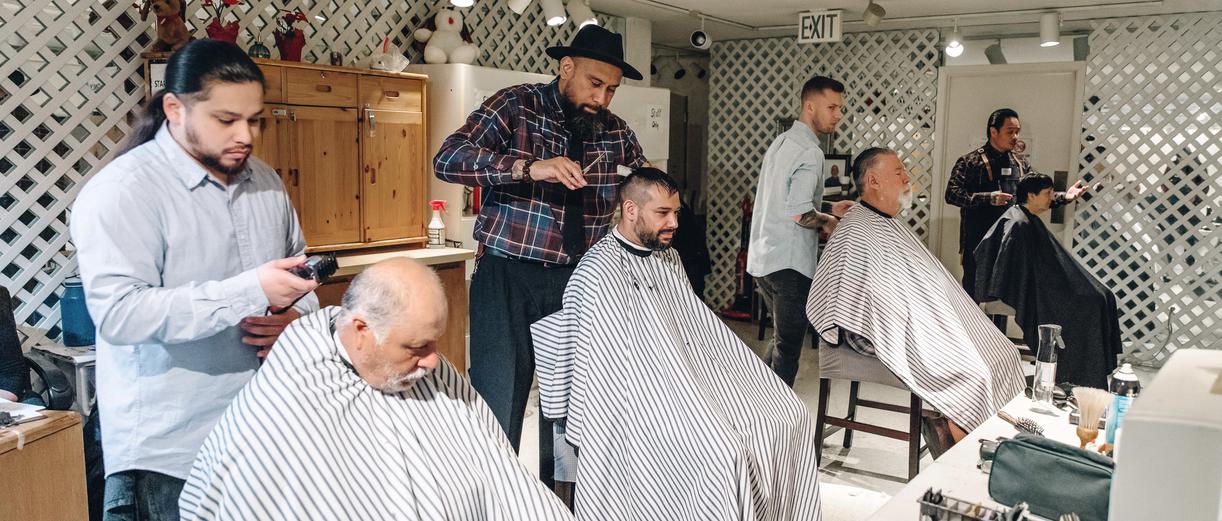
Partnering with the Trinity Center, we got to hear from the underhoused members of our community and learn about the center’s mission.
This story is part of the California.com series “Helping the Unhoused,” which examines homelessness and addresses ways we can help the unhoused and underhoused communities.
While we might not have the answers to some of the state’s most pressing issues, we’re all part of the same community, and everyone deserves the opportunity to be heard. Over the past month, California.com set out to better understand the underhoused members of our state—interviewing Oakland advocate Needa Bee, participating in the annual Carnival of Love, and hosting a haircutting event at Walnut Creek’s Trinity Center—and give back however we could.
Partnering with the Trinity Center, we got to hear directly from the underhoused members of our community and learn about the center’s mission to be the doorway to opportunity. On a daily basis, the Trinity Center provides food, clothing, showers, telephones, and a sense of community for those who would not otherwise have access.

Does your business rank among the best in California?
nominate a businessLearn more about our selection criteria and vetting process.
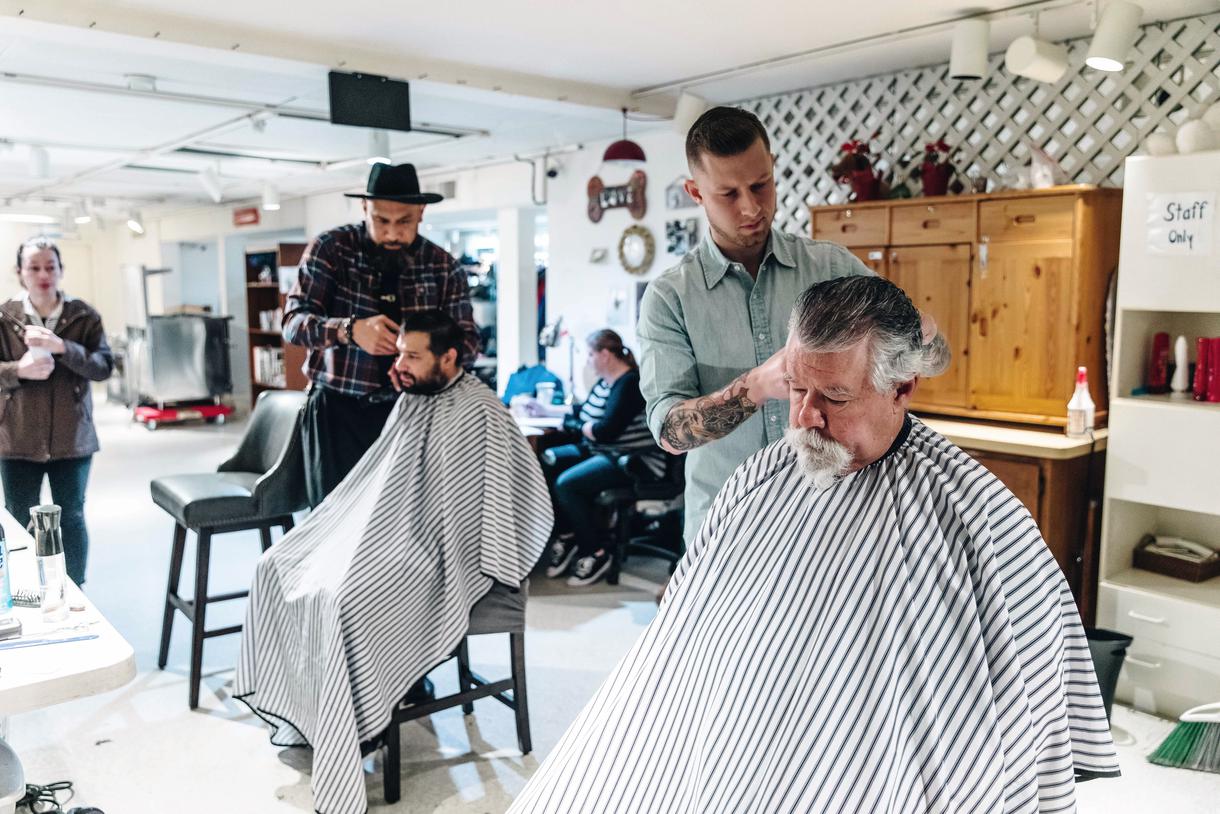
Walking into the Trinity Center, it’s clear that there’s a sense of camaraderie. Community members check in with Sara , a Trinity Center staff member, to sign up for laundry, showers, and on this special occasion, haircuts. After putting their names on the list, they grab some food, shop for new clothes, share videos on their phones, and connect with one another.
Bay Area barbers Max Lober and Adrian Geldres of Hi-Definition Barbershop join Mark-Jason Solofa and Al Guerrero of Mark-Jason Solofa Men’s Grooming to set up their stations—complete with clippers, spray bottles, and styling products. Max and Mark have dedicated their time to launch a nonprofit: The Art of Being a Gentleman, which aims to help people become better versions of themselves. The pop-up at Trinity Center is the duo’s first event. Many of the Trinity Center’s members have gathered around and positioned their chairs to face the haircutting event, intrigued and excited by the services that are available to them.
“Thank you, ma’am. You’re very good at this,” one woman says to Sara after she signs up for a shower. Meanwhile, two men in the next room help each other find clothing, embracing after sharing pleasantries with each other. Three men at a time are getting haircuts, and it’s clear by the looks on their faces that they don’t want it to end. These individuals are part of our community, and these are some of their stories.
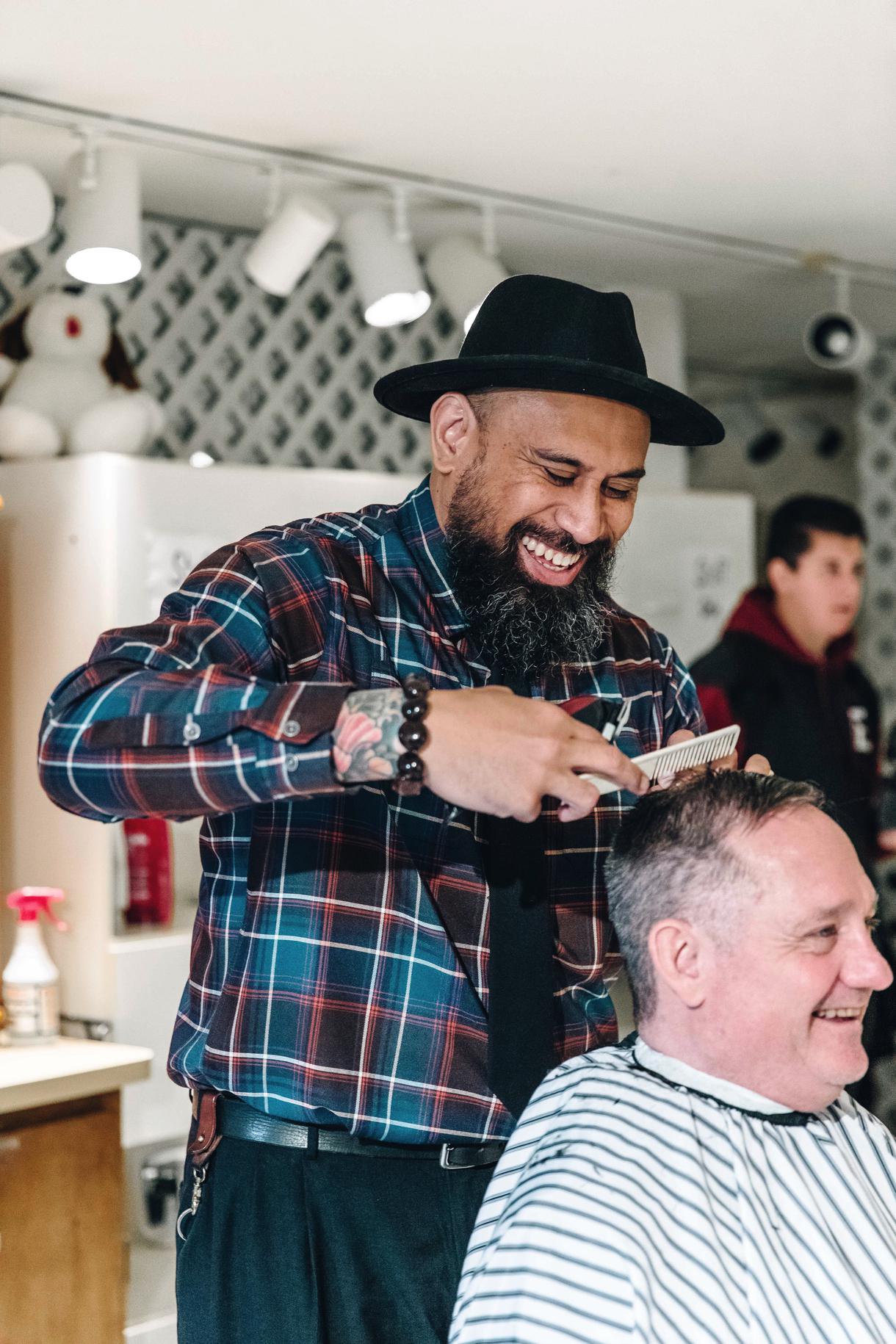
One man named Gregory appears to be close to tears as he discovers that his barber, Mark, has also lost cartilage and needs a similar hip-replacement surgery. Gregory will turn 66 this month and walks with a cane, unable to keep his scheduled appointments for the surgery without a place to go to recover—a luxury he only has during weekdays. Having a permanent disability and having previously been jailed for a crime he claims he didn’t commit, Gregory clearly lives a difficult life, but his spirits remain high.
He lets us know that he got his hair cut about three weeks ago by a man who has been doing his hair for the last 50 years. Even with close ties, Gregory is typically charged $30 for a haircut—with one particularly memorable experience in San Francisco costing him $80—and is harassed despite his put-together appearance and clean Nikes.
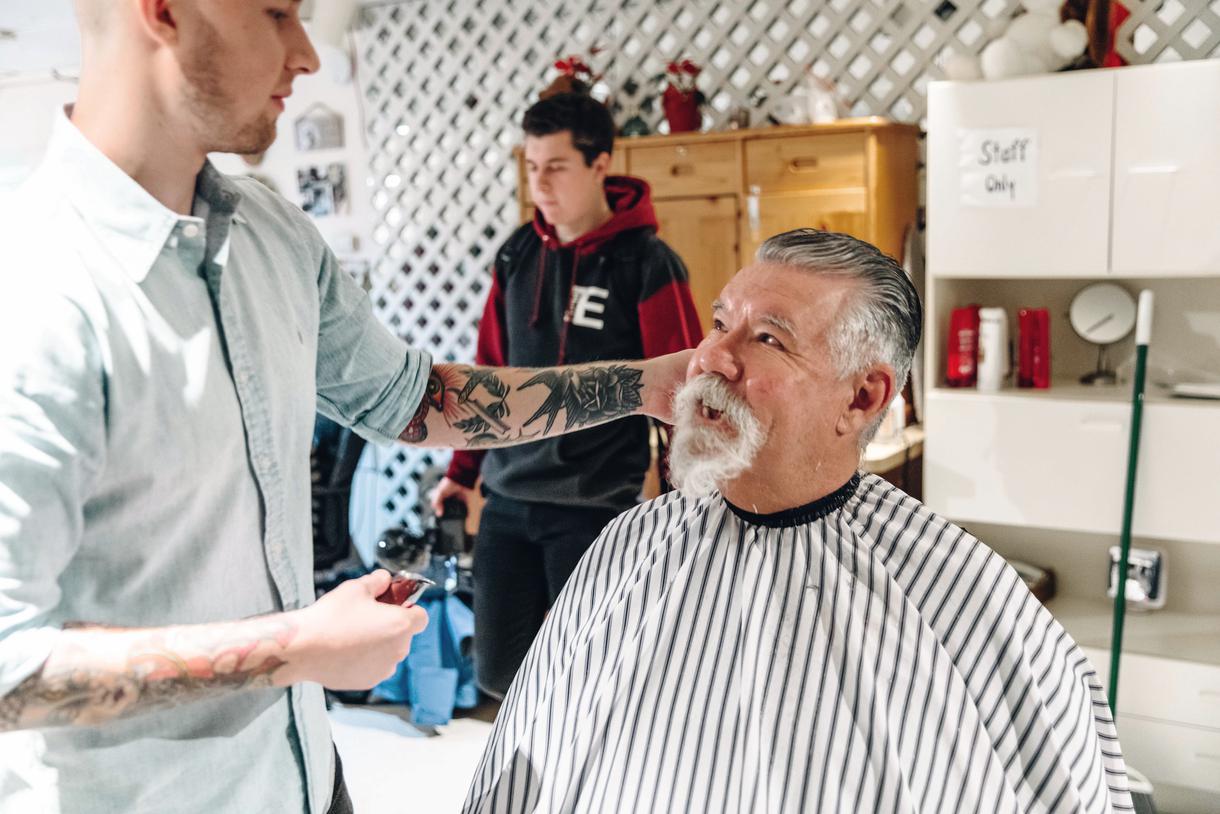
James, 63, is one of the most talkative, feeling at ease as he speaks to his barber, Max. Their conversation covers everything from Detroit basements to San Jose Sharks hockey games as James shares his wide range of knowledge. After his haircut and beard trim, he tells us that he was worried about how his facial hair would turn out; he’s missing his front teeth on the bottom and prefers to keep his mustache and beard a bit longer to disguise it.
“You lose your vanity after a while,” James says, but he knows he looks good after his service. “I stood in line for one-and-a-half hours,” he informs us, “but I got first shower, first laundry, and a haircut.”
He hadn’t gotten a haircut for a year because he must choose between a haircut and a beard trim at the barber training school he goes to. Even this cut costs him $5 and as many hours because he has to take multiple buses to its location.
I ask James what his profession was and he looks at me, eyes sparkling, and says he was a jockey. He is easily six feet tall and laughs at my surprise, telling me he was actually a driver. He studied German and international business in college, hoping to someday make it to Germany. Originally, he got a job in banking but eventually discovered an affinity for cars after going to several transportation auctions for business.
James began working as a driver; he knew how to handle right-hand drive and found success driving expensive cars for weddings and events. Eventually, he met a man with a Bentley and became his driver. Over time, three intersection-camera tickets piled up—without James ever knowing—and since the car was registered to the other man, James never saw the tickets. James dropped off his employer at San Francisco International Airport and was approached by an undercover cop, who recognized the Bentley James was driving and informed him that there were 15 tickets on the car. The Bentley was towed, and James was sent to the DMV to figure out how many of the tickets were issued to him. Since he had failed to appear in court (not knowing he had to), James now owed $9,000 in warrant fees. On February 20, 2016, his license was taken, and he hasn’t driven since.
James was born in Canada and moved to San Jose when he was four years old, later settling in Pacheco and finally moving to Martinez. Despite having family in Texas, James loves California, saying, “I wouldn’t live in Texas, not for five minutes.”
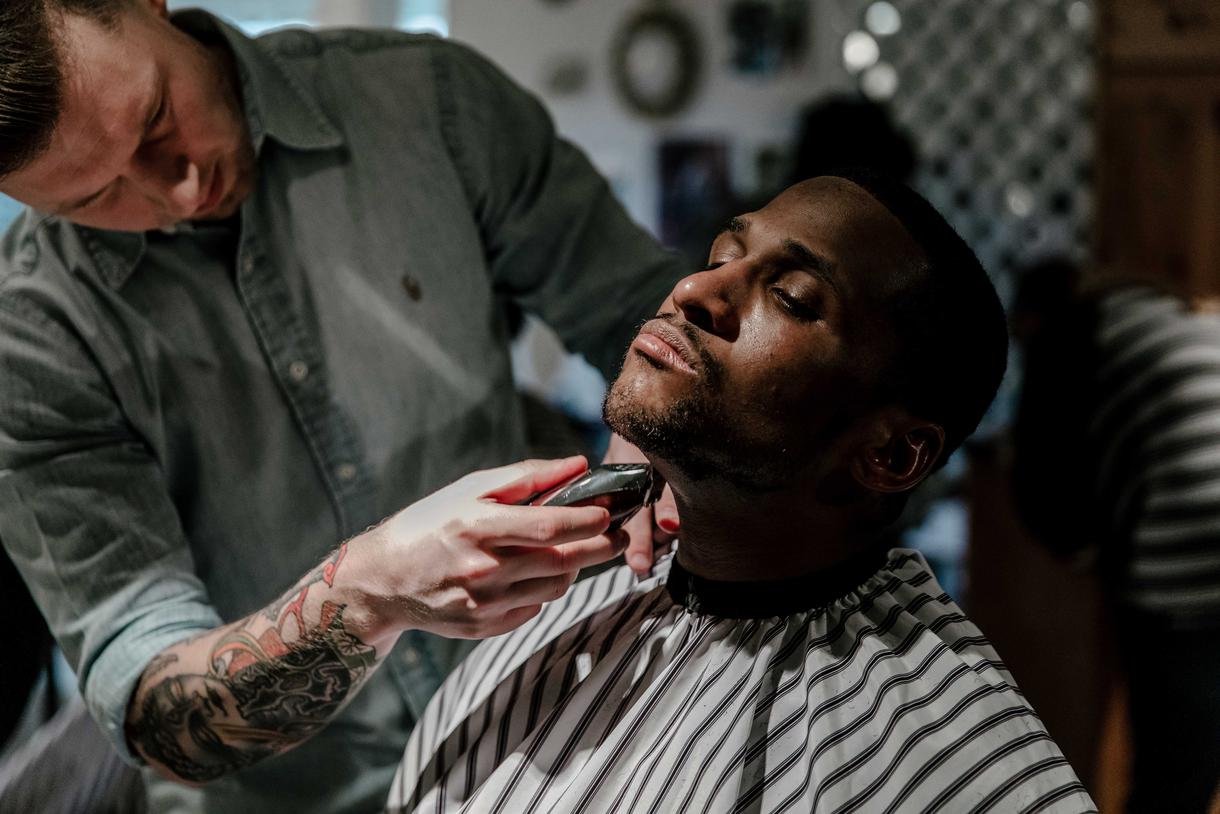
The Trinity Center is a unique place that provides a variety of services to the underhoused members of the community, but it also aims to treat everyone as a person rather than as a victim or a homeless person. This level of respect is often lacking in society, but the staff at Trinity Center is full of empathetic and caring individuals like Sara, who help make people’s day. “Any service like this that can come here [to the Trinity Center] is appreciated,” says Marie, a member of the Trinity Center community, after getting her haircut, “because I don’t drive anymore.”
The Trinity Center has become a vital part of the Walnut Creek community by providing services to the underhoused as well as those experiencing poverty. Above all else, the Trinity Center is a safe place, but the nonprofit also provides basic human services, including warm meals, showers, laundry facilities—plus access to telephones, clothing, and support services which assist citizens in finding housing and stable employment opportunities. If you’d like to get involved at the Trinity Center, sign up to volunteer or consider donating canned foods, undergarments, and clothing.
Before the Trinity Center event, I sat down with two of the incredible barbers who donated their time—Max Lober of Hi-Definition Barbershop and Mark-Jason Solofa of Mark-Jason Solofa Men’s Grooming—to discuss their barbering journeys as well as their emerging nonprofit, The Art of Being a Gentleman.
“We’re going to change the world,” Mark says through laughter. “All of it. We’re starting in the Bay, and then we’re going to go out.”
Max: I’ve never left California, but my mom is from Germany. She was an immigrant, and she came here because California was the state—it was the dream to end up in California. So she did. I always felt like since she dedicated her life to come here, I better stay. But it’s a great place to grow up.
Mark: My ex-wife is from here, but I just got my citizenship a year and a half ago. That’s been kind of cool: being an immigrant, first generation here.
Seeing the American Dream stories over the years in movies and stuff, it’s been a cool journey to be able to say to my kids and my grandkids that, Yeah, your dad is a first-generation [immigrant]; he’s a barber, a tradesman. Which, in the days of Ellis Island, the immigrants were the laborers, the butchers, the barbers, so I kind of have this picture that I painted for myself that is a little bit romantic, but hey.
When I got my citizenship, I had my kids with me, and I got my certificate. I said, “I want that to be the picture that goes down through the generations,” and I’m proud to say that it was here in California.
California was always the land of opportunity back in the days of the wild frontier, so it definitely has some romantic symbolism to be here and be able to do what we’re doing. So, why not build the nonprofit here and make something amazing happen?
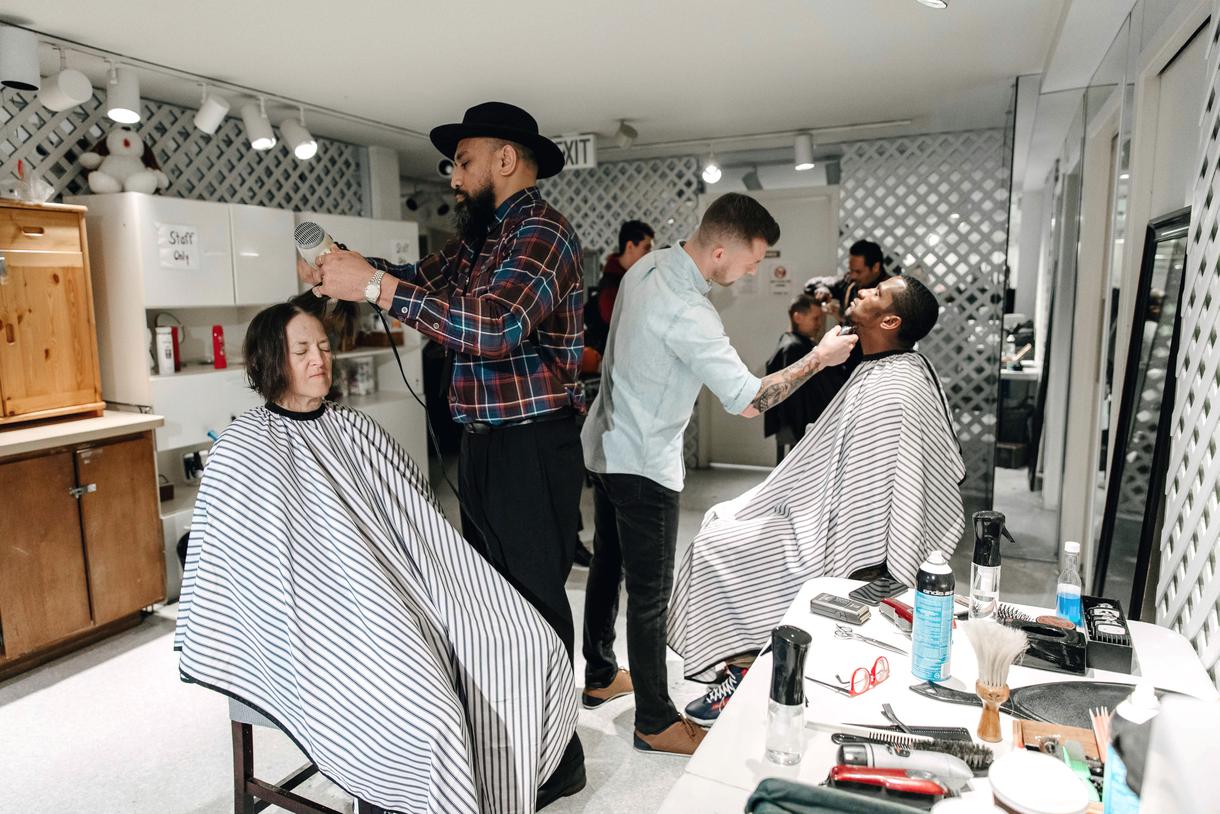
Max: My mom did hair and was a hairstylist for 40 years. I got into cutting hair in high school. I was an athlete, so I cut [the hair of my] teammates on the basketball team.
[My mom] opened a salon right next door, [and when] she retired, I took that over. Then I opened this one, [Hi-Definition Barbershop], and the one down the street.
Mark: I used to be in banking and got laid off when the market crashed in 2008. I wanted a new career where I could have more control over my destiny, so to speak. I had shared custody of my daughter, who at the time was 5, so I just wanted to be more available for her. Finding a career where I could: 1. primarily have more control over my schedule to be available to her during her formidable years. And 2. something that incorporated things that I enjoyed—which had to be something creative and fashion-related.
I did one of those Venn diagrams back in the day, and barbering seemed to be the center of it. So, I took my severance check and said, “Let’s give it a go,” and haven’t looked back since.
Mark: I like the community. We build our own communities in here. I grew up in the middle of the South Pacific, so I’m used to being around communities and families.
When I moved out here—I don’t have family out here—so that was a part of my life that I missed for a long time. Now, as a barber and owning shops, I’ve been able to build [a family] for myself within the shops with clients and the people I work alongside. I like that part; it’s good for the soul.
Max: I would say the confidence that it gives people when you give them the mirror, and the way they feel when they walk out.
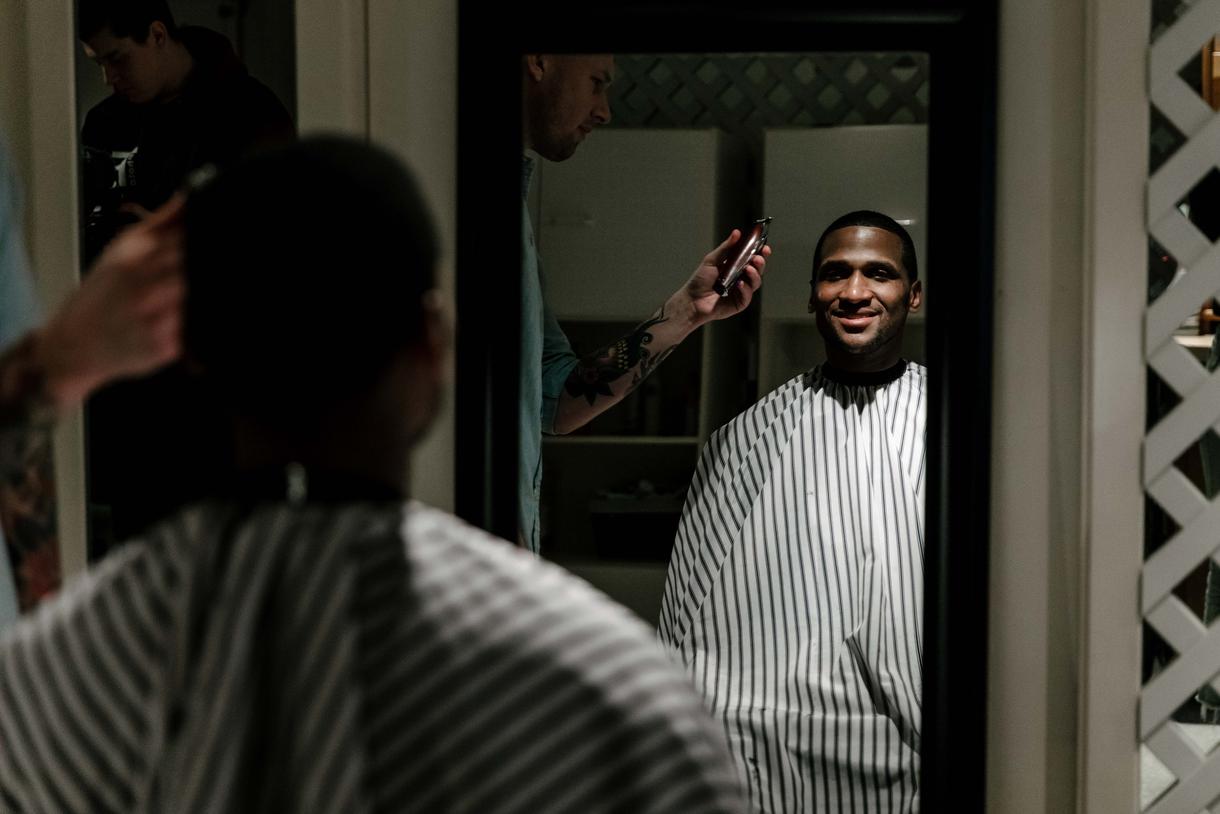
Max: Obviously, he owns his own barbershop and I own my own barbershop, but one thing that I think we kept noticing—mainly through social media—was that our branding is kind of the same when it comes to customer service, putting the customer first, giving back to the community, and all of those themes. So, we linked up.
I went to his barbershop to get my hair cut, and I think from that day, we kind of knew at some point we would do something together. We kept in touch and decided we would do this.
Basically what it is, is we’re trying to give back. We’re going to go into juvenile halls and hopefully help [the youth] reform their ways through barbering.
Mark: To let them see that barbering as an occupation and as a trade has offered us, as men, a lot of opportunities to become better versions of ourselves. As barbers, talking to our clients, we’re trying to help them become better versions of themselves when they look to us as therapists and counselors.
So, [we want] to do the same for these young men and women at a turning point, or crossroads, in their lives when they’re like, “What do I do when I leave here?” [We want] to say, “This is something that’s reachable and attainable for you,” because many of us in here have been down that road of making mistakes. There are a lot of people that have become barbers as second careers or after being incarcerated and have been able to change for the better.
Our goal is to use the platform of barbering because not only can this offer you a way out of wherever you’ve been, but also provide for you financially; it can build a community and a brotherhood different from the one you may have been in that got you incarcerated in the first place. Then, the opportunities are endless. From there, they can own their own businesses and become respectable members of the community.
We feel that barber shops are relatable to most youth because they’re in every neighborhood, they’re in every community, and young men typically—no matter what neighborhood you grow up in—have looked to the barbers as being approachable, as somewhat of a celebrity in their own neighborhood. He has his own business, he always has a nice haircut, always dresses fancy. We feel that it’s more attainable than the famous athlete or the guy in the suit, so we figure: Why not use this as an opportunity to allow these young people to become better versions of themselves [and] also help to change the culture within our own barbering community. We all need to become better versions of ourselves.
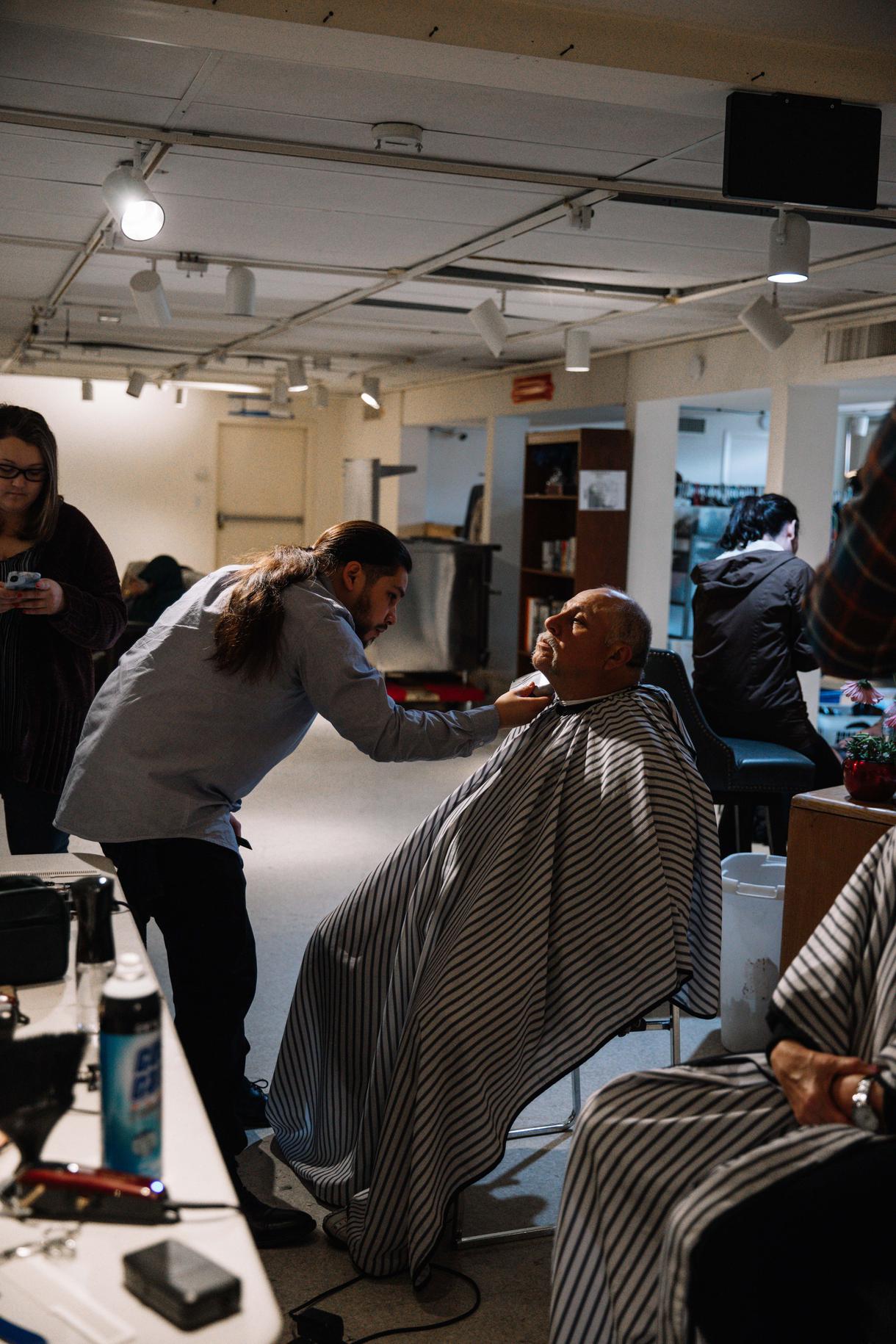
We’re just launching. We’ve got our LLC, and now we’re going through the process of becoming a nonprofit. We have the event [at the Trinity Center], and then we have an event in March that will be focused on barbers already in the industry. [We’re trying] to see how we are all failing as men and as barbers that are not related to cutting hair. What are we struggling with? What are we struggling with in our home lives? And how can we come together to inspire each other to do better?
Max: It’ll probably be a monthly, ongoing thing that we have—just classes for barbers to talk about things that they’re struggling with.
Mark: That’s not typically something that, not just barbers, but men typically open up [about]. They feel that Oh, if I talk about something, then I’m perceived as weak.
I was raised as “no pain, no gain” and [told] not to cry, not to have these kinds of emotions that other people look down on or would frown on. But it is acceptable, and if we don’t heal ourselves, how can we be counselors to our clients when they reach out for that same sort of guidance?
One of our business partners was talking about how we should be looking in the mirrors at ourselves. We look in the mirrors when we’re cutting hair to see the work that we’re doing, but not enough of us look in the mirror to be honest with: Where are we in terms of today? Am I a better version today than I was yesterday? What am I doing to improve on that?
Max: For me, I would say it’s because I was in that phase myself—just like all the barbers who work in my shop. I could have easily ended up in jail or prison because the education system told me no over and over again. I was told by counselors that I wasn’t going to be anything because of my grades and I wasn’t going to college, and things like that.
But luckily, I found a passion, and I think all of these kids that are in juvenile hall are probably just one passion away from being contributing members of society. If we can even help one kid out of 1,000, I think it’s a win.
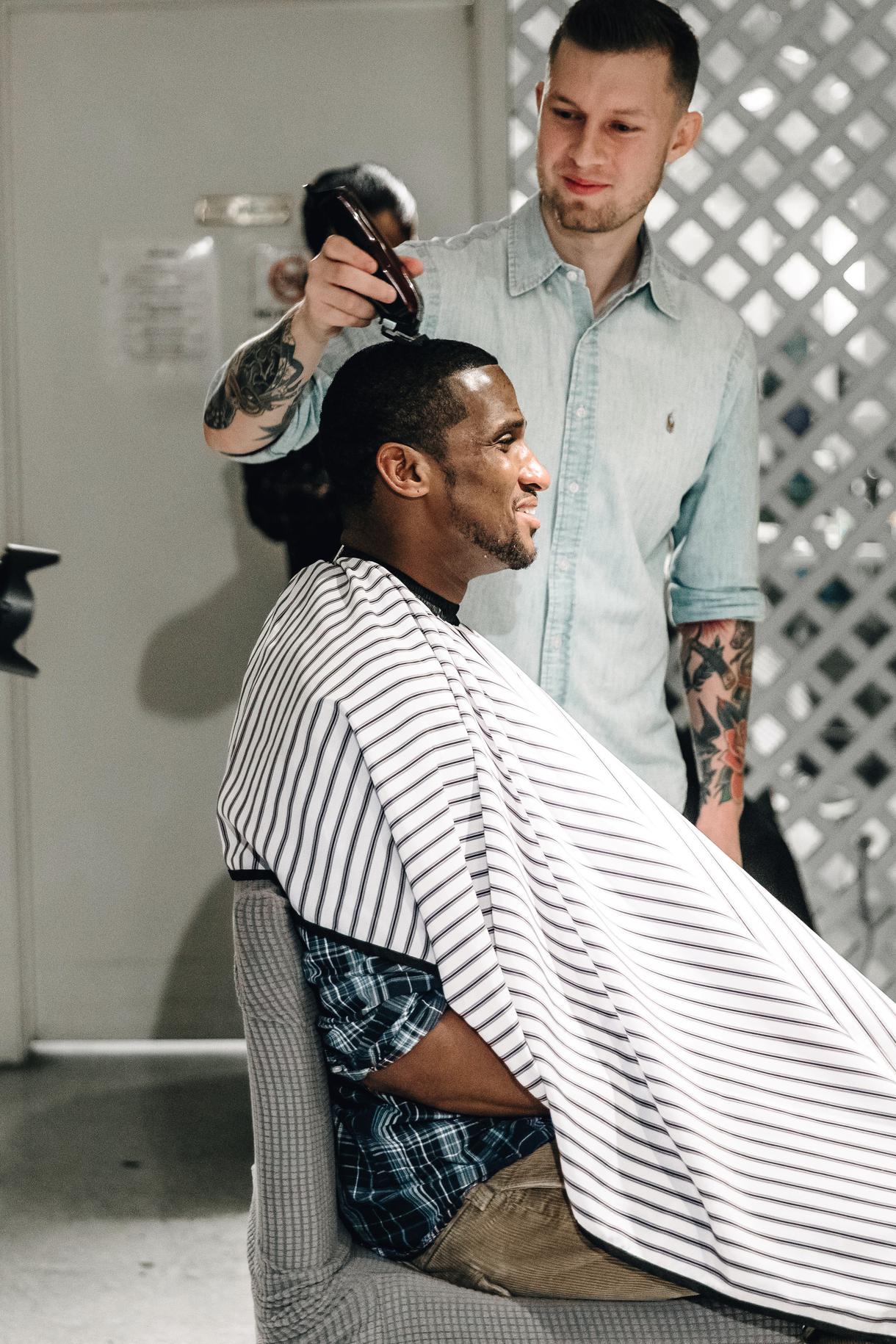
Mark: It ties back to what we do every day; it’s this community and it’s this relationship building.
A lot of these kids haven’t had relationships with positive male role models. If we can offer that to them and offer that to ourselves—[Max] talked about me being a mentor to him, but he inspires me just as much as I possibly do to him. I’m 50 this year, he’s 28, but we’ve both accomplished very similar things. But if I look at my 28-year-old version, I wasn’t even close to what he’s been able to do for himself. I tell him, “You’ve got so much potential and the potential to grow into where I’m at in the next 20-something years”. And even with me, where I’m at, I’ve probably got another 20 years left. So to do that and to give back, [that’s] the heart of it.
It’s great to get paid to do something that I enjoy—and that these guys can afford to pay for us to do these things—but what about those who need it a lot more than the people who have a good job and are pretty secure with themselves? What about the ones at a crossroads?
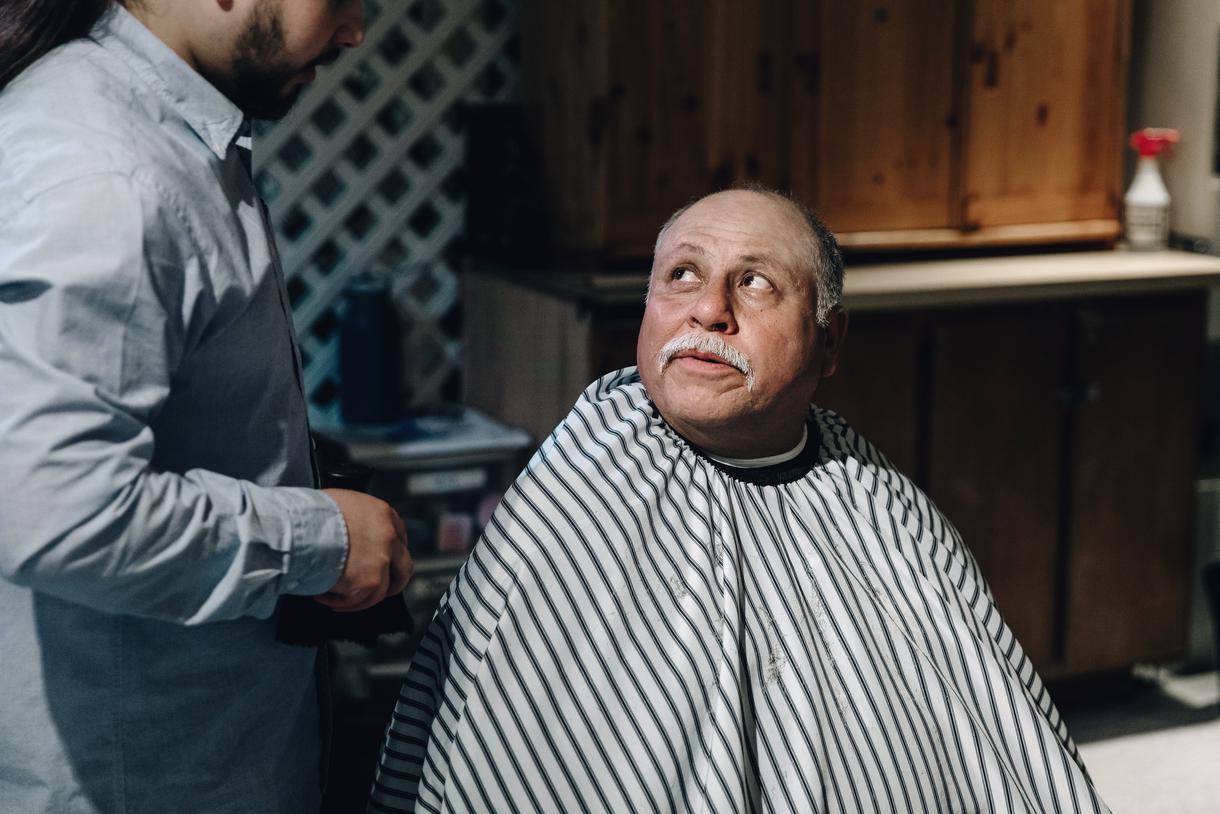
I did a presentation about five years ago. I went to a group home in Fresno. One of the counselors was following The Art of Being a Gentleman social media page, liked the message that was coming across, and asked if I could come and talk to the boys.
I’d say there were about 15 to 20 young men in there that were serving their time and then going to go back to their communities after that. I just talked to them about what I understood the value of being a gentleman was. I said it wasn’t about how fancy you dress but about what’s in his heart. Is he being a nice person? Is he a contributing member of society? Is he respecting women and men?
I brought them a little gift bag with a necktie, a handkerchief, a pocket comb, and a pommade. Through the conversation, one of them asked, “Do you think I can wear this tie to a court hearing next week?”, and I said, “Yeah, I think the judge would appreciate you showing up with a tie on”.
After the presentation, one of the kids walked me back to my car and asked if he could ask me a question. I said, “Of course”, and he says, “What am I to do when I get out of here? I’m just going to go back to my neighborhood where it’s selling drugs, or abusive homes. How am I to change? What you’ve told me is all good and well, but I’m not set up for that when I leave here.” I said, “Well, what do you want to be when you leave? What is your dream goal at the end? What do you want to become for yourself?” He said, “I want to become a pastor.” So I told him, “Who better to have a testimony behind the pulpit than you because of the journey of where you’ve been to where you are now? But in order for you to do that, you have to make a choice when you leave here. Put the blinders on like a racehorse, and say, ‘To become a pastor, I have to do these things’. That’s not to say you won’t make mistakes along the way still, but no one can speak better to a group of young men like yourselves than you will down the road.”
He thanked me for that piece of advice. That was worth the presentation and going all the way to Fresno for—and the fact that one guy wore a tie to his court hearing. If it was able to change at least one person, then it was worth giving back for. I think they walk away with the advice and the example that we need—more so than the paying customer does.
We’re two guys who are passionate about what we do, and we just want to give back in some small way. Mark-Jason Solofa

Max: For me personally, I never really left. This has always been my home, so my answer is simple: I think I’m going to live and die in the Bay Area just because my family is here, it’s where I am. I’m very rooted here. I went to Las Lomas High School in Walnut Creek. I’ll never leave.
Mark: Like I said, my ex-wife is from the Bay Area, so I ended up here from American Samoa. Now, I have kids and this is where their roots are, so what better place than here?
Back home, they already have that community; we have that accountability for doing right and wrong. It’s such a small town that you can’t do something wrong and not get home and have somebody already have heard about it. That’s already there, but here it’s such a wide area. Our goal is to reach as many as possible.
Max: I know Mark has done events like this before, but for me personally, I’ve never done it. I’ve only owned the shops for two years, and we’ve talked about it every year, but it’ll be my first time giving back. I think it’s really aligned with everything me and Mark are trying to do with The Art of Being a Gentleman. We’re trying to give back to the kids [and] give back to homeless people; it’s all in the same nature of giving back.
Mark: At the end of the day, it’s about community. Kids, elderly, homeless, those with homes, veterans—we all have to live together.
The downside of our luck makes us realize that we’re not each other’s neighbor. And the Bay Area, being somewhere that’s very transient—people come, they have a contract, and they leave; people rent a lot—it’s not like the old days when you know your neighbor of 30 years and keep an eye out for your neighbors.
We always use the phrase “iron sharpens iron”. If we’re not taking care of one another, then who will? Everyone’s a brother, everyone’s a sister in the community. [Take] whatever chance you can get to help those that need the help—and there may be a time when we need the help and hope that it would be reciprocated.
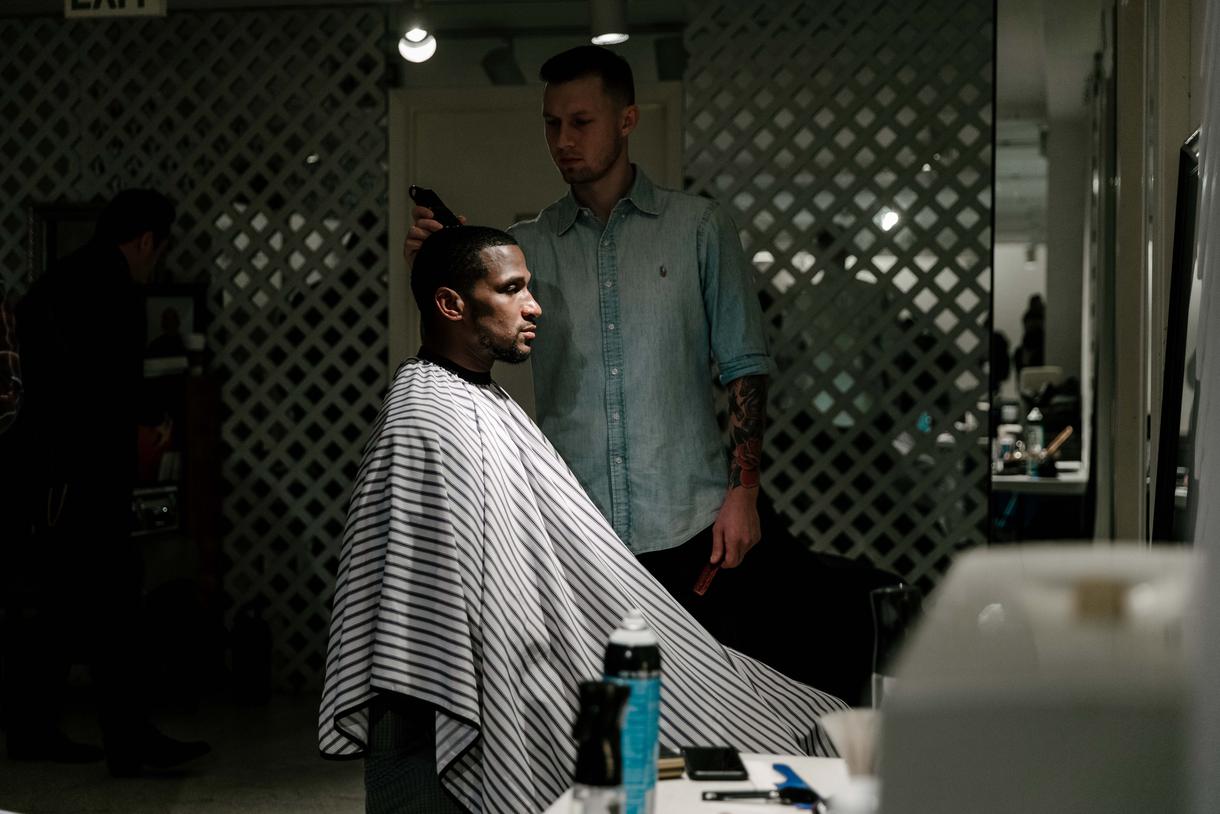
Max: The people, the drive, and the motivation. I guess it would be similar to New York, but it seems like everybody that comes into the barbershop is working on something. There are very few people that are just complacent and unhappy. Everybody’s working towards a goal—whether it’s their career or building their family, there’s always something happening, and you can feel that. It’s like everybody’s their own entity.
Mark: I think it’s definitely people-related; it’s the diversity. I grew up on a small island, so I was pretty sheltered. It’s expensive [here], and people are trying to do something, trying to get better, and doing whatever they can do to stay above ground. And the diversity includes those that are below ground, trying to push a cart, and trying to ask for change.
To see the disparity and to see the differences all in one area is a beautiful thing. I think it’s something that people don’t want to acknowledge, but it’s everyday life. We see it every day at the barbershop, and to give back at these events is part of everyday life, too—to help those that aren’t so good and balance that out.
Max: And I think that we could only really do something like this in a place like this.
Mark: I feel like just because we don’t have the answers doesn’t mean that we shouldn’t be trying and doing our part to bridge some of the gaps. I’ve always wanted to be able to do something that was good for the heart and good for those that you’re helping—to feel like you’re actually making a difference in some way.


All waterfall hikes in L.A. have one thing in common—unbeatable views of terrific cascades. Here are the ones to try next.

Discover how to track and prepare for meteor showers in California for a spectacular celestial viewing experience.
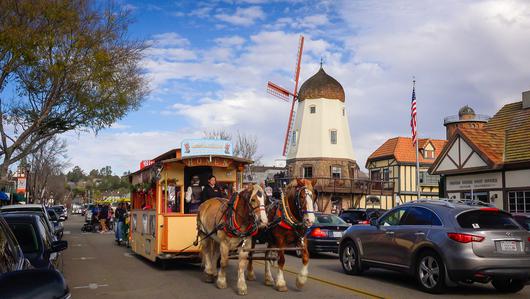
Ditch the busy Spring Break crowds and check out these fantastic, underrated spring travel destinations in California.

Gaze into California's amazing sunsets with our exploration of the top sunrise spots in California.

